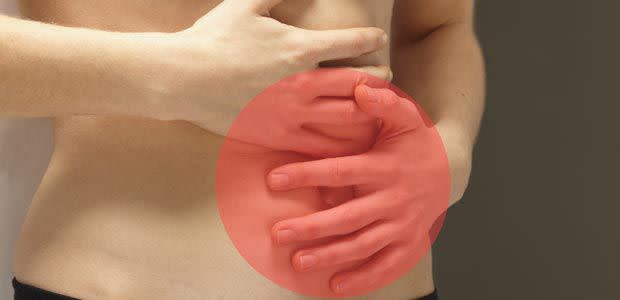Why Your Period Might Change After Having a Baby
After having a baby, it's likely that you'll experience changes in your menstrual cycle.

Medically reviewed by Sanaz Ghazal, MD
You can experience different changes when it comes to your menstrual cycle, including after pregnancy. Your first period after a baby might have a different flow, or it may take a little while to return. Here's what else you should know about periods after pregnancy.
Short-Term Changes
The most immediate change with your periods is regularity. Your periods will likely be irregular once they start again.
You may not ovulate during the first few weeks or even the first few months after childbirth. However, ovulation can occur without the return of menstruation. That means pregnancy is possible before your first postpartum period happens.
Long-Term Changes
The duration for irregular periods can last between three to six months after menstruation starts again. Eventually, regular periods may return.
Period flow can change over time as well: It may become heavier after childbirth.
Period-Like Symptoms in the Postpartum Period
There are some symptoms that may appear to be signs of menstruation following childbirth but are common postpartum symptoms. They include:
Afterpains: Afterpains, or uterine cramping, can occur after delivery. They may feel like menstrual cramps, but they aren't related to menstruation. The cramps happen because the uterus contracts and relaxes while it shrinks.
Lochia: You may also have bleeding and discharge following childbirth called lochia. Blood that is part of lochia may initially be bright red but over time begin to turn light pink.
What Can Contribute to Period Changes?
The way a person experiences their period is based on a few factors, like hormones and breastfeeding status.
Age
Periods can change as you age. Between your 20s and 30s, your cycles may be regular. As you approach your 40s, periods may become irregular, varying in length and flow.
Breastfeeding Status
The timing of a person’s first period after childbirth will vary and depend on their breastfeeding status. Periods can return after six to eight weeks for individuals who are not breastfeeding. If a person chooses to breastfeed, they may have their first period anywhere between four to five months and 24 months after giving birth.
Breastfeeding might be used as a form of birth control to delay periods, known as the lactational amenorrhea method (LAM). The following criteria must be met in order for LAM to be successful:
Amenorrhea, or the lack of periods
Breastfeeding fully or the majority of the time, with no interval between feedings more than four to six hours
Being less than six months postpartum
Hormones
Hormonal shifts can alter your periods. For example, progesterone—one hormone important for maintaining pregnancy—drops after birth. Progesterone levels rise after ovulation, so someone who isn't ovulating won't experience increases in progesterone.
Estrogen is responsible for making the uterine lining thicker in preparation for a potential pregnancy. Estrogen levels also fluctuate postpartum, which can impact your menstrual cycle and periods.
Hormonal Birth Control Use
Hormonal contraception, or birth control, can affect your menstrual cycle. You might experience lighter, shorter periods or no periods at all. Irregular bleeding or spotting is also possible with the use of hormonal contraception.
When To Talk to a Healthcare Provider
Within the first year of childbirth, talk with an OB-GYN if you experience abnormal vaginal bleeding following pregnancy. Signs to look out for are:
Heavy bleeding where you soak through one or more pads every hour
Passing tissue or clots bigger than egg
Vaginal discharge odor
See an OB-GYN if you experience any of these symptoms as well:
Chest pain
Dizziness or fainting
Extreme arm, face, leg, or hand swelling
Extreme tiredness
High fever, 100.4 degrees Fahrenheit or higher
Rapid heartbeat
Severe nausea or vomiting
Thoughts of harming yourself or the baby
Trouble breathing
Bring any questions or concerns about your health following delivery to an OB-GYN. Here are other concerns you can ask them about:
What your symptoms may mean
Any tests you could have in order to rule out serious health problems
When you should seek or call for emergency care
A Quick Review
After childbirth, your menstrual cycle may be different than it was before. Your periods can be irregular, may not return right away, or have a heavier flow. Factors like hormonal birth control and age can affect various aspects of a person's period. Just remember to check in with a healthcare provider if you have concerns about your first period after a baby.
For more Health news, make sure to sign up for our newsletter!
Read the original article on Health.
